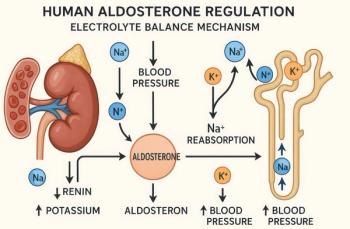
?-Blocker Therapy for Stress-Induced Myocardial Infarction During the Perioperative Period?
Each year, about 27 million Americans undergo anesthesia followed by surgery. Roughly 50,000 of these patients have a stress-induced myocardial infarction during the perioperative period.
Newly published information sheds light on this debate.5 Lindenauer and colleagues looked at in-hospital mortality in a retrospective cohort study of over 122,000 patients 18 years or older who received perioperative b-blocker therapy before noncardiac surgery. To quantify each patient's risk of coronary complications, a so-called Revised Cardiac Risk Index (RCRI) score was used. This index ascribes points to each of the following risk factors:
Patients who scored 0 or 1 point either did not benefit from β blockade or were actually harmed. However, those with 2 or more points had a relative risk of coronary death ranging from 58% to 88% of that of patients with the same RCRI score who did not receive β-blocker therapy. Those who scored 3 or more points benefited the most. For example, in patients with an RCRI score of 4 or more who received b-blocker therapy, the relative risk of cardiac death was 58% of that of patients with the same score who did not receive such therapy.
What do these findings mean for your practice? Perioperative administration of a β-blocker may benefit your patients who are scheduled for high-risk surgery (1 point) and who score at least 2 more points on the RCRI scale. Those with an RCRI score of less than 3 points should not receive such therapy until more evidence accumulates.6
References:
REFERENCES:
1. Fleisher LA, Eagle KA. Clinical Practice. Lowering cardiac risk in noncardiac surgery. N Engl J Med. 2001;345:1677-1682.
2. National Quality Forum. Safe Practices for Better Healthcare: A Consensus Report. Washington, DC; 2003. Publication NQFCR-05-03.
3. Yang H, Raymer K, Butler R, Parlow J. Metoprolol after vascular surgery (MaVS). Can J Anesth. 2004;51:A7.
4. Juul AB. Randomized, blinded trial on perioperative metoprolol versus placebo for diabetic patients undergoing noncardiac surgery. Presented at: American Heart Association 2004 Annual Scientific Sessions; November 7-10, 2004; New Orleans.
5. Lindenauer PK, Pekow P, Wang K, et al. Perioperative beta-blocker therapy and mortality after major noncardiac surgery. N Engl J Med. 2005;353:349-361.
6. Poldermans D, Boersma E. Beta-blocker therapy in noncardiac surgery. N Engl J Med. 2005;353:412-414.
Newsletter
Enhance your clinical practice with the Patient Care newsletter, offering the latest evidence-based guidelines, diagnostic insights, and treatment strategies for primary care physicians.
































































































































